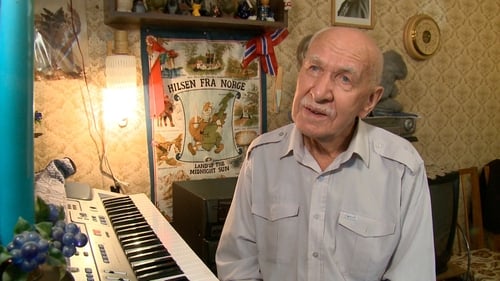
Producer
The film tells about the Second World War, when the Norwegians and Russians fought side by side to expel the fascists from their native land. About those who won the war, but lost the world. This is a tape about wounds inflicted by wars, about people whose fates turned out to be broken in the millstones of big politics. This is a story about how a son is trying to find out the truth about his father's past.

Screenplay
The film tells about the Second World War, when the Norwegians and Russians fought side by side to expel the fascists from their native land. About those who won the war, but lost the world. This is a tape about wounds inflicted by wars, about people whose fates turned out to be broken in the millstones of big politics. This is a story about how a son is trying to find out the truth about his father's past.

Director of Photography
The film tells about the Second World War, when the Norwegians and Russians fought side by side to expel the fascists from their native land. About those who won the war, but lost the world. This is a tape about wounds inflicted by wars, about people whose fates turned out to be broken in the millstones of big politics. This is a story about how a son is trying to find out the truth about his father's past.

Director
The film tells about the Second World War, when the Norwegians and Russians fought side by side to expel the fascists from their native land. About those who won the war, but lost the world. This is a tape about wounds inflicted by wars, about people whose fates turned out to be broken in the millstones of big politics. This is a story about how a son is trying to find out the truth about his father's past.

Cinematography
When film director Morten Conradi´s father met Igor Trapitsin, a Russian prisoner of war, for the first time in Brønnøysund in Norway 1945, it was the beginning of a friendship that lasted until Morten’s father died in 1977. Morten always wanted to find Igor and find out how he survived the barbaric conditions in the camps during the Second World War. So in 2009 Morten went to Moscow to meet him. The answer Igor gave was unexpected, he simply said: "Singing saved my life".




